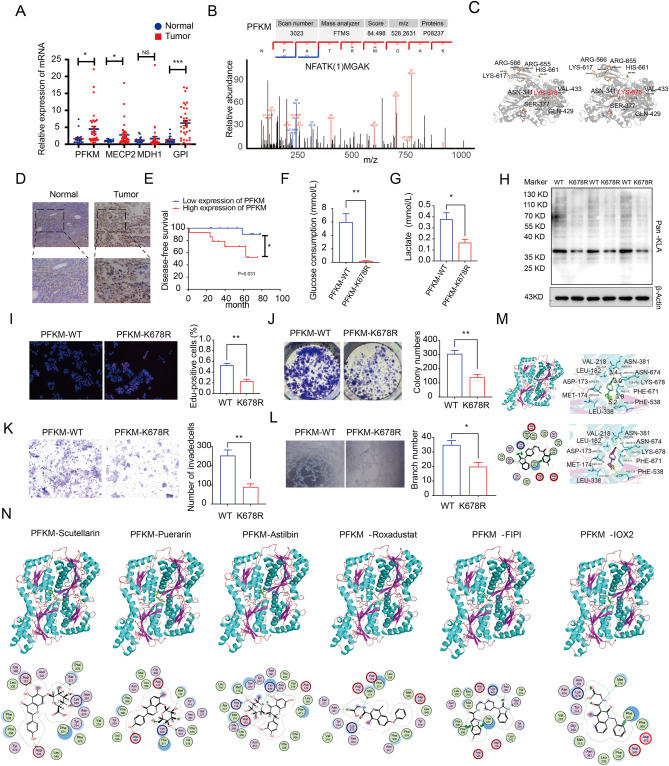
Role of PFKM lactylation in glycolysis regulation in endometrial cancer cells


The incidence of endometrial cancer (EC) is increasing, particularly in high-risk cases with poor prognosis.1 Reprogramming glucose metabolism is the main feature of energy metabolism in EC cells, resulting in substantial lactate accumulation.2 Recent research indicates that the accumulation of lactic acid during the metabolic process can serve as a substrate.3 The high concentration of lactate accumulated by metabolites can promote the malignant progression of tumor cells by modifying key proteins through lactylation.4,5 Therefore, the role of lactylation in the occurrence and development of EC is worth exploring. We found lactylation-related genes (PFKM, TXN, AKR1A1, MECP2, MDH1, GPI, GOT2, and COX4I1) that play a role in the occurrence and development of EC and constructed a lactylation score model. The lactylation score has a strong correlation with the clinicopathological features, immune cell infiltration, and genetic instability of EC based on the data in The Cancer Genome Atlas database. Our research showed that PFKM (phosphofructokinase, muscle) underwent lactylation in vitro, which promoted colony formation, invasion of Ishikawa cells, and angiogenesis of HUVEC cells. Our findings provide new molecular prognostic markers and potential therapeutic targets for EC, thereby contributing to the identification of potentially effective drugs for EC.
